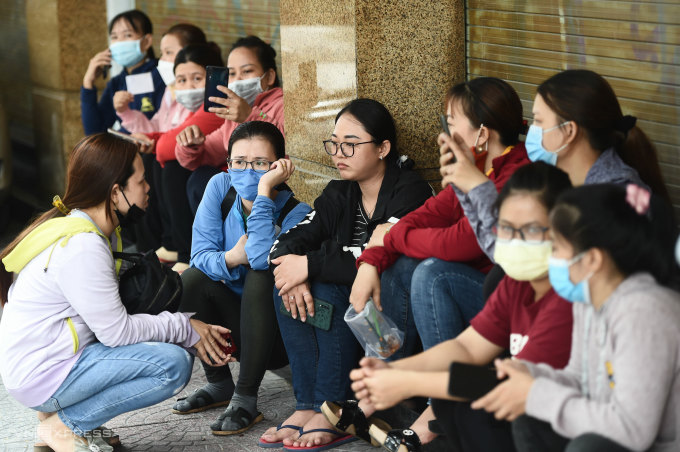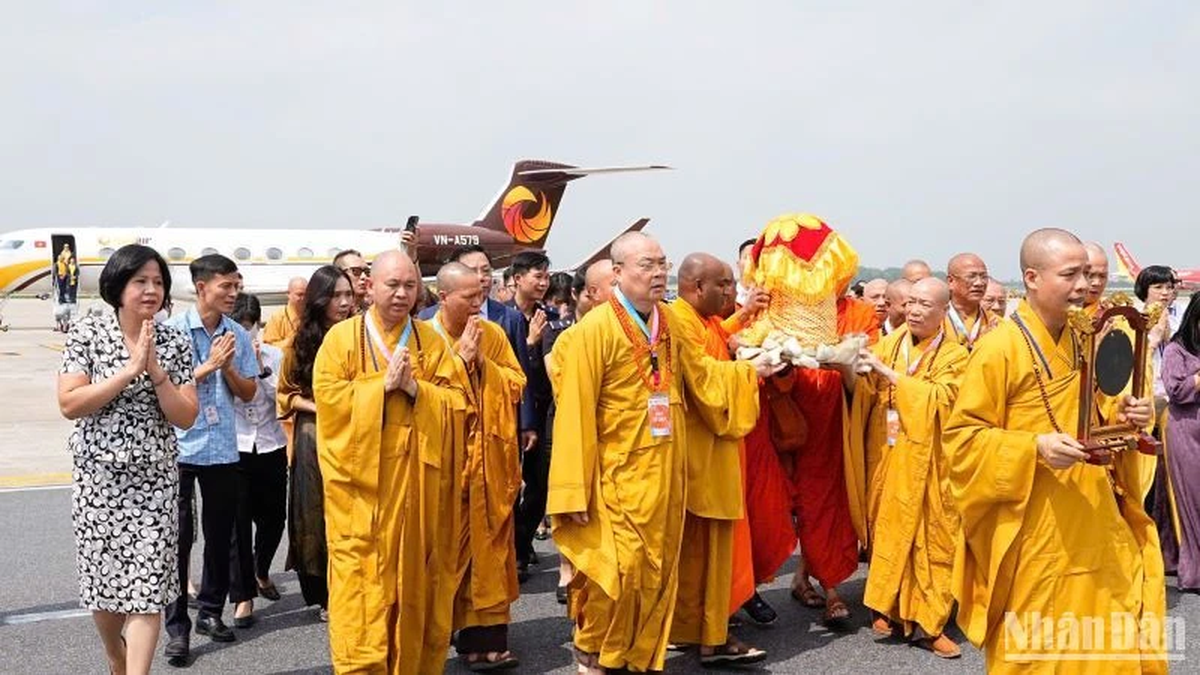The government proposes that business owners who are late or evade social insurance payments for more than 6 months will have their invoices suspended, and those who are delayed for more than 12 months will have their exit delayed.
In the Report on receiving and explaining opinions on the draft revised Law on Social Insurance in mid-September, the Government proposed many measures to handle slow and evasive payment of compulsory social insurance. The sanctions were introduced in the context of increasing annual insurance debt, occurring in all types of enterprises with the amount of interest to be calculated of more than VND 13,150 billion by the end of 2022.
Clarifying the behavior of delaying and evading social insurance payment
The latest draft stipulates that the deadline for compulsory social insurance payment is no later than the last day of the following month if the enterprise chooses to pay monthly, and at the same time separates and clarifies acts of late payment and evasion of payment.
Specifically, late payment applies in two cases. One is when the business owner has registered for employees to participate in compulsory social insurance but after the last day of the following month (if paying monthly), they have not paid or have not paid enough money.
Second, submit within 90 days after the prescribed deadline. According to the bill, the prescribed deadline is within 30 days from the date of signing the contract, the business owner must submit the social insurance participation documents for the employee.
Three acts of social insurance evasion include: Employers have not submitted or submitted compulsory social insurance registration documents after the prescribed time; registered and paid lower than the salary used as the basis for compulsory payment; business owners have registered to pay social insurance for employees, have the capacity but do not pay.
In cases of force majeure such as natural disasters, epidemics, economic recessions... that affect businesses, the Drafting Committee proposes to temporarily suspend contributions to the Pension and Death Fund for 12 months and not have to pay interest when making additional payments.
Hand over to the Social Security agency to file a lawsuit
The draft adds a provision that the Social Insurance Agency has the right to sue employers who are late or evade paying social insurance after administrative sanctions have been imposed but they still violate the law. In cases where there are signs of a crime of evading payment under the provisions of the Penal Code, the Social Insurance Agency will recommend prosecution.
Current law empowers unions to file lawsuits in court, but they must be authorized by the employee. The overlap in laws means that there have been almost no cases of evasion of social insurance contributions, although the Social Insurance Agency has recommended prosecution in nearly 400 cases. Investigators determined that half of these cases were not prosecuted because there were not enough elements to constitute a crime.
Many sanctions are also proposed to be applied to employers who are late or evade paying social insurance. Specifically, the competent authority will decide to stop using invoices for business owners who are late or evade paying for 6 months or more, have been administratively sanctioned but still delay paying or do not pay enough money. For units that owe social insurance for 12 months or more, the legal representative or authorized person will be delayed from leaving the country.

Workers on leave gathered in front of Gia Dinh Textile Joint Stock Company (HCMC) to demand social insurance benefits, April 2023. Photo: Thanh Tung
The National Assembly Standing Committee decides on compulsory social insurance contributors for each period.
In the draft in July, the Ministry of Labor, War Invalids and Social Affairs proposed that the National Assembly assign the Government to gradually include workers with stable and regular incomes in the compulsory social insurance scheme over time. The proposal in the new context has brought more than 17.4 million people (more than 38% of the workforce) into the social security net, while the target by 2030 must reach 60%.
In the latest draft law, the Drafting Committee proposed that the National Assembly Standing Committee decide on compulsory participation for workers, depending on the period. This provision comes from the fact that the freelancing economic models, e-commerce, sharing, etc. are developing strongly, creating new groups of workers. These groups will contribute significantly to the economy and to ensure social security, they need to be included in the compulsory social insurance soon.
However, the Ministry of Labor, War Invalids and Social Affairs believes that this is a new and important issue related to social security rights. Assigning the National Assembly Standing Committee to decide based on the Government's proposal aims to ensure the authority and feasibility of the regulation.
Withdraw the proposal for free health insurance card if not receiving one-time insurance
In the submission in July, the Drafting Committee proposed that people who, after one year of unemployment, choose to reserve their payment period and not withdraw it at once will be given a free health insurance card, paid for by the Social Insurance Fund. The maximum benefit period is equal to the social insurance payment period. This is a supplementary policy to encourage workers not to withdraw their social insurance at once.
After the consultation process, the Drafting Committee withdrew this proposal from the latest draft. Instead, the Government should study or propose to the National Assembly Standing Committee solutions to support workers during the period of unemployment during the process of amending the Employment Law, especially the support regime from the Unemployment Insurance Fund.
After nearly 30 years of implementation, the social insurance policy has so far covered only over 38% of the working-age workforce. Statistics for the period 2016-2022 show that nearly 4.85 million people have left the social security system. Of these, 1.3 million people have returned, continued to work and pay social insurance; nearly 3.55 million have not returned; 907,000 workers have withdrawn twice; more than 61,000 people have withdrawn three times.
The revised Social Insurance Law Project is expected to be discussed by the National Assembly at the October 2023 session, approved at the May 2024 session, and take effect from July 1, 2025.
Hong Chieu
Source link



![[Photo] President Luong Cuong awarded the title "Heroic City" to Hai Phong city](https://vphoto.vietnam.vn/thumb/1200x675/vietnam/resource/IMAGE/2025/5/13/d1921aa358994c0f97435a490b3d5065)
![[Photo] Many people in Hanoi welcome Buddha's relics to Quan Su Pagoda](https://vphoto.vietnam.vn/thumb/1200x675/vietnam/resource/IMAGE/2025/5/13/3e93a7303e1d4d98b6a65e64be57e870)
![[Photo] Prime Minister Pham Minh Chinh receives Ambassador of the French Republic to Vietnam Olivier Brochet](https://vphoto.vietnam.vn/thumb/1200x675/vietnam/resource/IMAGE/2025/5/13/f5441496fa4a456abf47c8c747d2fe92)
![[Photo] President Luong Cuong attends the inauguration of the international container port in Hai Phong](https://vphoto.vietnam.vn/thumb/1200x675/vietnam/resource/IMAGE/2025/5/13/9544c01a03e241fdadb6f9708e1c0b65)






























































































Comment (0)